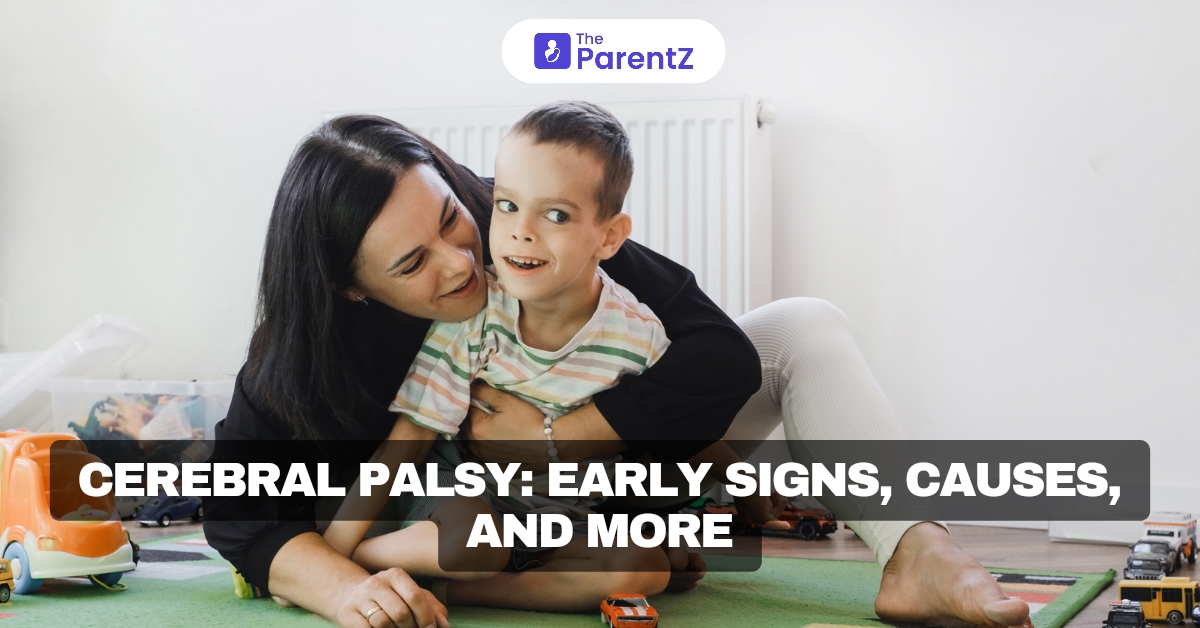According to the Centers of Disease Control and Prevention (CDC), almost one in every 345 children is affected by cerebral palsy. It is one of the most common motor disabilities in childhood. This neurological disorder particularly affects motor skills, muscle tone, and movement. Besides, it can also impact communication, sensation, and cognitive functions of the body.
Read below this article to understand what cerebral palsy is, its early signs, causes, and treatment in detail.
Cerebral Palsy: What Is It?
Cerebral palsy is typically a group of neurological disorders that occurs due to brain damage before, during, or right after birth. While the term cerebral refers to the brain, palsy indicates weakness. It is a nonprogressive condition, which means while the symptoms can vary with time, the brain damage remains the same and does not worsen. However, the impact of this condition can get more pronounced as the child grows.
Early Signs of Cerebral Palsy
It is difficult to diagnose cerebral palsy in infants. However, it is important to recognize the early signs to avoid any complications. Some of the early signs of this condition include
Delay In Developmental Milestones
If you notice a delay in achieving developmental milestones, such as crawling, sitting, or speaking at the expected age, it is important to seek a doctor.
Abnormal Muscle Tone
Babies with too much or too little muscle tone is another key indicator since an abnormal muscle tone can impact your kid’s ability to move or to maintain balance.
Poor Balance and Coordination
Kids who have cerebral palsy may struggle with coordination and balance. They may also find difficulty grasping objects, moving smoothly, or maintaining a stable posture.
Involuntary Movements
Movements like jerking, tremors, or writhing while doing some tasks are a common indication in kids with this condition.
Difficulty Swallowing
Trouble swallowing, sucking, chewing, and other feeding difficulties is another early sign in kids with cerebral palsy.
Causes
The primary cause behind cerebral palsy is damage to the developing brain or abnormal brain development, which can be due to the following factors:
Prenatal Concerns:
Most cases are due to issues during pregnancy, which may include infections like rubella, exposure to toxins, or conditions that interfere with blood supply to the brain. In a few cases, genetic mutations can also contribute to this condition.
Birth-Related Concerns:
Though rare, some cases can occur during labor or delivery. Some reasons include prolonged lack of oxygen to the brain, birth trauma, or a very low birth weight.
Postnatal Concerns:
In some rare cases, cerebral palsy can occur due to a severe infection, a head injury, or a stroke that damages the brain during the critical developmental phase.
Diagnosis
Pediatricians recommend regular health checkups to recognize any developmental delays and initiate further evaluation. If the condition is suspected, various neurological examinations and tests like CT scans and MRIs are considered to identify any abnormalities or damage to the baby’s brain. In a few cases, genetic testing might also be required to confirm the condition.
Treatment
There is no definitive cure for cerebral palsy. However, therapies, such as physical, occupational, and speech therapies, are recommended to improve coordination, communication, motor, and speech skills. Besides, your healthcare provider may also administer some medications to reduce involuntary movements and reflexes or control seizures in kids. If there is any joint deformity or to improve mobility, surgery may also be considered as suggested by the doctor.
Conclusion
Cerebral palsy is a lifelong neurological disorder with no specific cure. It is important to identify the early signs to ensure proper management of the condition before the symptoms turn more pronounced. If you suspect any such signs, visit your healthcare provider at the earliest for an immediate diagnosis.





Be the first one to comment on this story.